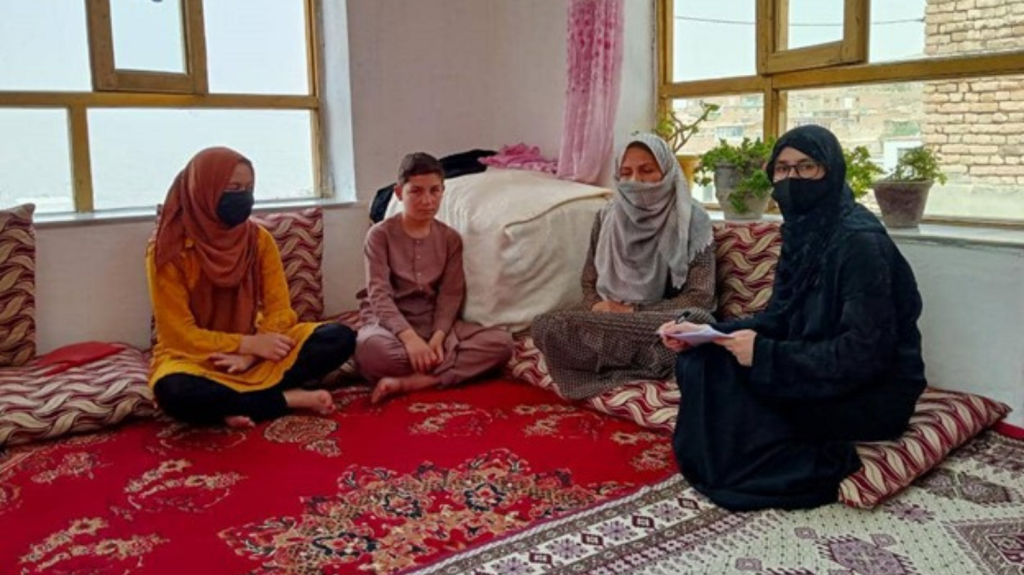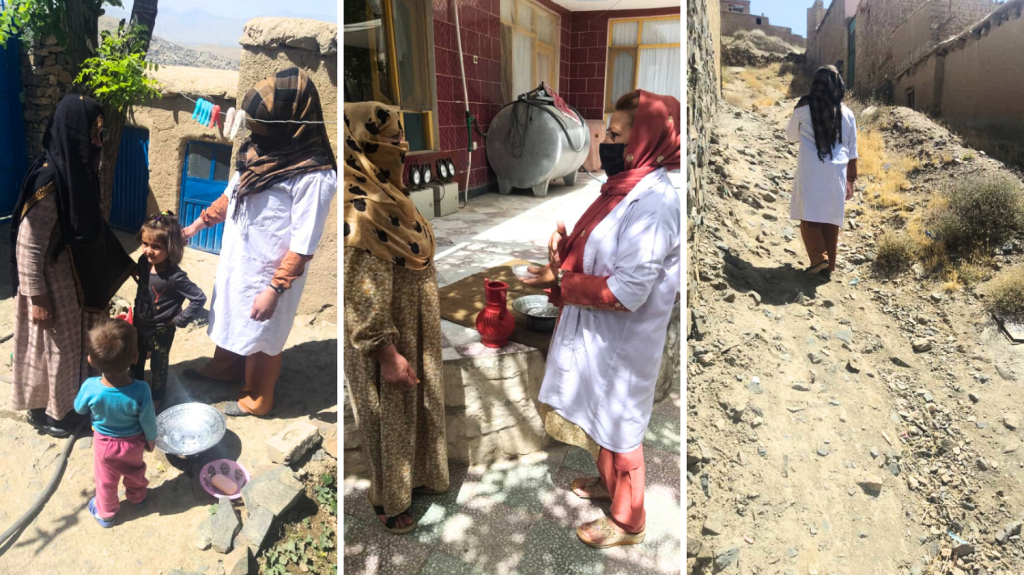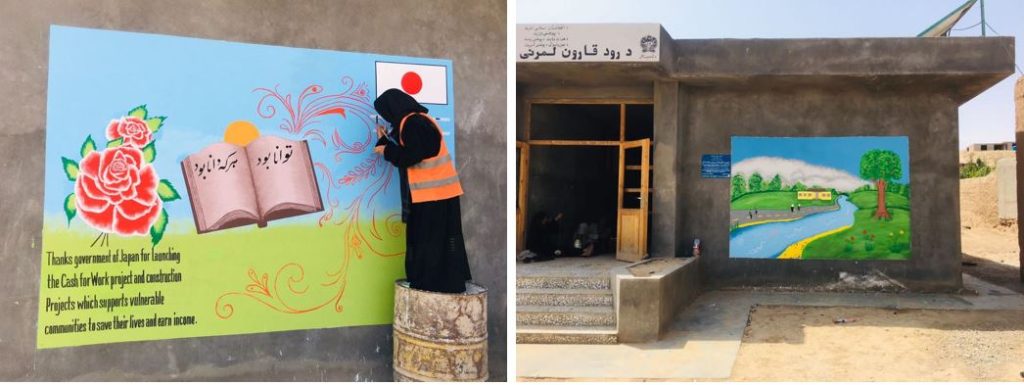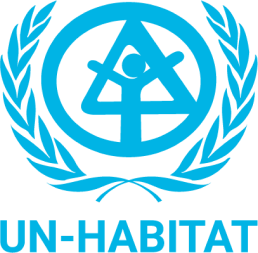“Life is challenging, and in recent times, it has become even more difficult due to the economic downturn. Nevertheless, I stumbled upon a job opportunity within my community, and it felt as if I were lighting a candle of hope in my life once again.”
Shkiba, a mother of four daughters and one son, resides in Sarai Kotal-Shahrak Kamyab, one of the informal settlements in central Kabul, Afghanistan. Her husband passed away nine years ago, and this was the beginning of the tough time in her life. When he passed, her youngest child was just three years old.
“Since that moment, I have shouldered the responsibility of caring for my family, working tirelessly to raise my children with good health and an education.” She worked as a housekeeper and tailor to provide for her children. While her earnings were modest, she managed to afford notebooks and pens for her son’s education.

In Afghanistan, following August 2021 events that saw the government takeover by the Taliban, women have encountered numerous challenges due to restrictions on their participation in socioeconomic activities. These constraints disproportionally affect families led by women, like Shkiba’s. Such households, situated in informal settlements, are particularly vulnerable among others, necessitating urgent aid to meet their basic needs.
The job Shkiba found was created under UN-Habitat’s Cash-for-Work (CFW) initiative, an integral part of the “Emergency Support Programme for Conflict-Displaced Afghans,” generously supported by the Government of Japan. The CFW initiative aims to offer short-term income-generating opportunities to informal settlement residents, reducing household poverty, empowering individuals, and fostering community development through a community-driven approach.
In Shkiba’s settlement, a dedicated team of 37 CFW participants, comprising both women and men, united to undertake community improvement tasks. Eagerly, she joined the CFW team, actively contributing to a positive impact within her community.
The team diligently cleared debris and waste from drainage systems, mitigating potential flood risks during rainy seasons. Additionally, they levelled the access roads, enhancing safety and accessibility for pedestrians and vehicles. Through their collective efforts, the CFW workers made a long-lasting impact on the settlement, nurturing a cleaner, safer, and more resilient living environment for its residents.
Shkiba utilized her earnings from the CFW initiative to meet her family’s immediate needs. “Thankfully, I managed to buy some school supplies for my son, and the remainder went towards household essentials.” Expressing deep gratitude to the Government of Japan and all involved in the project, she shared, “I hope for more stable jobs in my country’s future.”

Apart from the capital city, UN-Habitat has also been implementing the Japan-funded project in urban Herat, where another positive change has been seen.
Another CFW activity offered immediate livelihood support to 45 vulnerable individuals in Kartah-Maiwand, Herat. They engaged in various temporary jobs, including excavating and levelling the grounds of Rood-e-Qaroon Elementary School to create more space for children to play and participating in school cleaning.
Among the participants was Sohaila, a female teacher at the elementary school. “Currently, finding job opportunities in our district is challenging, and economic hardships are widespread.” She and three female colleagues decided to join the CFW activity to support their families financially.
Upon commencing the CFW initiative, Sohaila and her female colleagues were tasked with brainstorming ideas to improve the school’s educational environment. They proposed decorating the building walls with vibrant paintings.

Sohaila said, “Since there is no green space around our school, I drew a land filled with trees, flowers, and a river under a blue sky, with the aim of inspiring my students with ideas of peaceful and safe environments for all.”
Due to budget constraints, Sohaila had to borrow tools like brushes from her colleagues, but she was pleased to contribute to improving the school environment.
She also painted books and pens with a message encouraging students to study hard. These lively wall paintings rejuvenated the school, and she said, “The project not only supported us economically but also infused vibrancy into the school buildings, igniting students’ enthusiasm for learning.”

©UN-Habitat Afghanistan
In Afghanistan, designing gender-inclusive projects is pivotal to enhancing women’s participation and ensuring their access to essential services and infrastructure in informal settlements. The Japan-funded project has catalysed an environment that enables Afghan women to fully and meaningfully engage in socio-economic activities through the CFW initiative in two cities.
Just like Shkiba and Sohaila, female participants have enthusiastically seized the opportunity to drive change within their communities amidst the ongoing humanitarian crisis. This has led to an increase in female representation at the community level, empowering the larger community.


